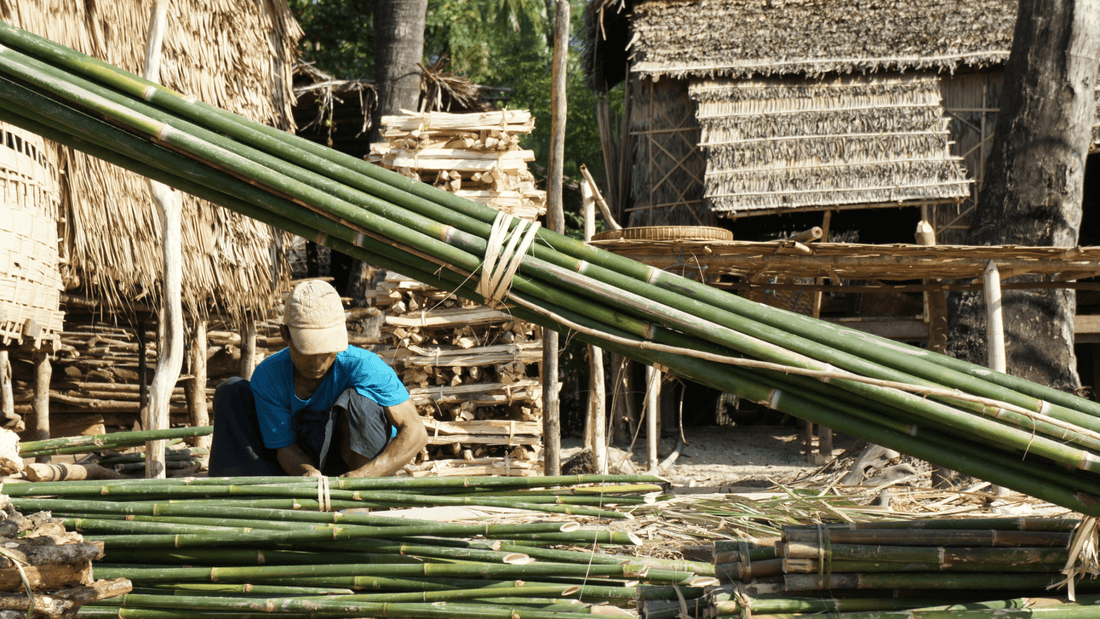
Why Bamboo Is Considered One of the Best Sustainable Materials?
As environmental challenges take centre stage in today's world, bamboo has emerged as one of the most promising sustainable materials. This remarkable plant combines rapid growth with minimal resource requirements while offering exceptional versatility across numerous applications. Recent research unveils bamboo's impressive capabilities in Carbon absorption, renewable energy production, and ecosystem restoration. Its natural properties make it an ideal candidate for replacing less sustainable materials in our quest for environmental balance and responsible resource management.
Unparalleled Growth and Regeneration Properties
Bamboo possesses extraordinary growth characteristics that set it apart from virtually all other plant-based materials. While traditional trees require decades to reach maturity, bamboo achieves full size in a fraction of that time, sometimes in as little as three months, compared to the 30+ years needed for conventional timber species. This rapid regeneration makes bamboo an exceptionally renewable resource that can be harvested regularly without depleting stocks.
Record-Breaking Growth Rate
Some bamboo species demonstrate astonishing growth velocity, with documented daily growth rates of up to 30 centimetres (approximately one foot). This remarkable speed allows bamboo to accumulate biomass approximately ten times faster than traditional trees, making it vastly superior for rapid resource generation. The plant reaches harvesting maturity in merely 3-5 years, creating a sustainable cycle of production that can meet material demands without long waiting periods.
Minimal Cultivation Requirements
Unlike many crops and timber plantations, bamboo requires minimal intervention during cultivation. The plant generally doesn't need irrigation systems, which significantly reduces water consumption compared to other agricultural endeavours. Additionally, bamboo cultivation can proceed without pesticides or chemical fertilisers, eliminating the environmental impacts associated with these substances. Once established, bamboo groves rarely require replanting, as new shoots emerge naturally from the existing root system, further reducing resource inputs.

Versatility and Applications Across Industries
- Despite its lightweight nature, bamboo exhibits remarkable tensile strength, sometimes comparable to steel when properly processed. Its natural flexibility also provides advantages in regions prone to seismic activity.
- Bamboo fibres can be processed into textiles with properties similar to cotton but with significantly lower environmental impact during production. The resulting fabrics find applications in clothing, bedding, and other textile products. Additionally, bamboo serves as a sustainable alternative for numerous household items, including toothbrushes, kitchenware, and furniture, offering consumers environmentally responsible options for everyday products.
Bamboo stands as one of the most promising sustainable materials available today, offering a remarkable combination of rapid regeneration, minimal resource requirements, and diverse applications. Its ability to sequester carbon at impressive rates while producing abundant oxygen positions bamboo as a valuable ally in addressing climate change challenges. The plant's versatility spans construction, textiles, food, medicine, beauty products, and emerging renewable energy applications, offering sustainable alternatives across numerous industries.
The continued exploration and adoption of bamboo-based alternatives represent a meaningful step toward more sustainable material choices and environmental stewardship.
